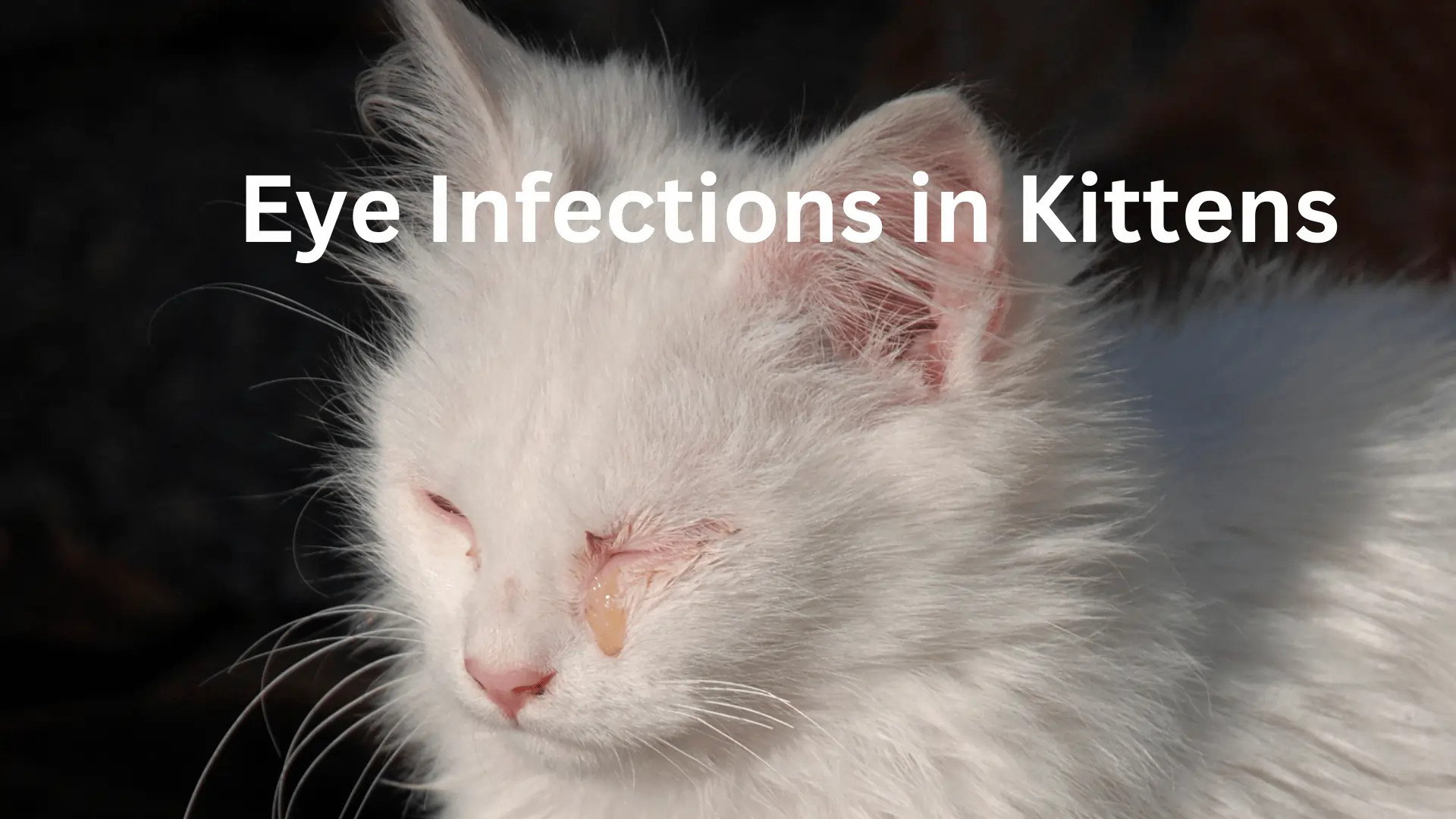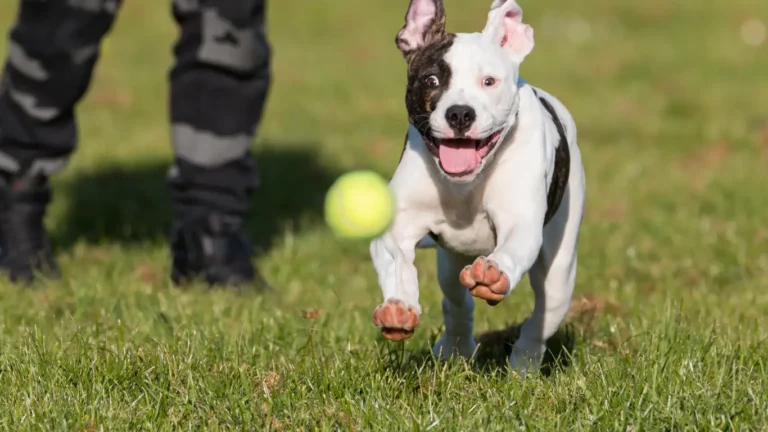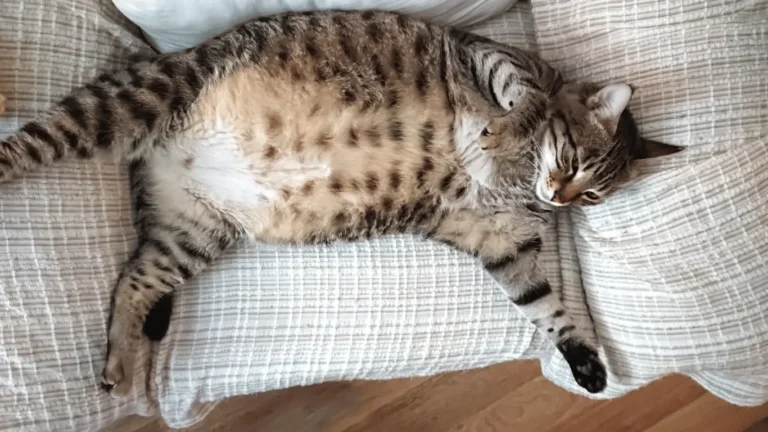Kitten Eye Infection: Causes, Symptoms, and Treatment
Kittens are amazing and make lovely little creatures. However, eye infections can be a health problem. Eye infections happen when tiny things like allergens or germs get into their eyes. These can hurt the soft, delicate parts of their eyes. Take care of your kitten. Providing clean surroundings can help prevent such problems. If a kitten’s eyes look red, swollen, or watery, it’s important to take it to a vet to help it feel better.
Common Causes of Kitten Eye Infections
Bacterial Infections
Bacteria like Staphylococcus and Chlamydia can cause eye infections. That is leading to redness, swelling, and discharge.
Viral Infections
Viruses such as feline herpesvirus (FHV-1) are common culprits. They’re highly contagious and often cause recurring issues.
Fungal Infections
Although less common, fungi like Aspergillus can cause infections, especially in weakened immune systems.
Environmental Irritants
Dust, smoke, and other irritants can cause inflammation and discomfort in kittens’ eyes.
Allergies
Kittens can develop allergies to certain foods, pollen, or cleaning products.
Trauma or Injury
Scratches or foreign objects in the eye can cause infections.
Early Warning Signs

Redness: The eyes may appear bloodshot or irritated.
Swelling: Puffy eyelids can indicate inflammation.
Watery Discharge: Clear tears might be a sign of irritation.
Advanced Symptoms
Thick Yellow or Green Discharge: This often signals a bacterial infection.
Crusting Around the Eyes: Dried discharge can crust around the eyelids, making it difficult for the kitten to open its eyes.
Squinting or Sensitivity to Light: This can show discomfort or pain.
Kittens show certain signs when they’re not feeling well. If their eyes are irritated, they might scratch or paw at them. A sick kitten might also eat less than usual, showing a reduced appetite. Additionally, you may notice that they have less energy and are more tired.
How Are Eye Infections in Kittens Diagnosed?
To find out what’s causing the infection, the vet will examine your kitten and check the eyes carefully. They will also look for signs of an upper respiratory infection.
The vet might take a small sample from the inflamed areas using a swab or by gently scraping some cells. This sample will be tested in a lab to identify any germs causing the infection.
If the vet thinks there could be a bigger issue, like tumors or an autoimmune disease, they may suggest more tests or bloodwork. This will help make sure there aren’t any serious health problems affecting your kitten.
Treatment for Kitten Eye Infections
Tke kitten’s vet will use warm water to soften and gently separate the eyelids if they are stuck together. Once the eyes are open, they will clean the eyes and eyelids to remove any discharge, pus, or crust. To prevent the eyelids from sticking together again, the vet applied an antibiotic ointment.
After the appointment, the vet will provide detailed instructions for taking care at home. This usually includes gently cleaning several times a day. If you clean it prevent discharge buildup. You may also need to use a warm compress and apply eye ointment or drops as directed.
Be sure to follow the vet’s instructions strictly. Additionally, keep the bedding and areas where the mother and kittens eat and rest very clean.
Important Tips
Consult Your Vet: Always seek professional advice before using any eye drops. Because the wrong medication can worsen the condition.
Do Not Use Human Eye Drops: Some human eye drops contain active ingredients that are toxic to cats.
Monitor for Side Effects: If you notice any side effects (increased redness, swelling, discharge, or discomfort), contact your vet immediately.
Avoid touching directly : Avoid touching the eye directly with your hands. Always use a clean cloth or cotton ball.
Kitten Eye Infection Home Remedy
If your kitten has an eye infection, it’s important to handle it with care. If you find serious health issues then consult the Vet. But here are some gentle home remedies for early symptoms of eye infection:
Saline Solution
You Need a clean, lukewarm water and salt. Mix 1 teaspoon of salt into 1 cup of warm water. Use a clean cotton ball or gauze pad to gently wipe away any discharge from your kitten’s eye. You can also flush the eye gently with the saline solution. Saline solution is a mild, non-irritating cleanser. That can help flush out debris and reduce irritation.
Chamomile Tea
Brew a chamomile tea bag, then allow it to cool to room temperature. Use a clean cotton ball to gently apply the tea to your kitten’s affected eye, or dip the tea bag and gently place it on the eye for a few minutes. Chamomile has natural anti-inflammatory properties that may help relieve irritation.
Fresh Aloe Vera
Apply a small amount of aloe vera gel to the outside of the eye area, avoiding direct contact with the eye itself. It’s best to consult a vet before using this remedy, as it can be irritating to some cats. Aloe vera is famous for its healing.
Newborn Kitten Eye Infection Home Remedy
Newborn kittens are very delicate. Their bodies are still learning how to fight off germs, so they can easily get sick. If you think your kitten has an eye infection, you need to be careful. If it’s not treated, it can cause long-term damage. For small eye problems, you can try some gentle home care. But it’s always a good idea to take your kitten to the vet to get the best help, especially because they are so young.
To help your newborn kitten with an eye infection, take a clean cloth and soak it in warm (not hot) water. Gently apply the cloth to the kitten’s eye for a few minutes. This will help soften any dried discharge or crust around the eye. Be gentle and careful.
FAQs
Can Cat Eye Infection Spread To Humans?
Yes, but it’s not very common but some cat eye infections can spread to humans. Viruses or bacteria caused by infections. Bacteria or viruses are usually species that primarily affect cats. However, if you have a weakened immune system, don’t touch the infected cat’s eyes. To protect yourself, wash your hands after handling or cleaning the eyes. Avoid touching your face or eyes.
Which Eye Drops Are Best For Cats?
When choosing eye drops for cats, select safe and appropriate ones. But it’s best if the drop is given by prescription. Don’t use human drops because they should be harmful. The eye drops for cats depend on the type of eye issue. Here are some options
For: Mild Irritation or Dry Eyes
Virbac Erythromycin Ophthalmic Ointment
Nutri-Vet Eye Rinse
Oasis Tears
For: Conjunctivitis, Bacterial Infections, or Eye ulcers
Terramycin Ophthalmic Ointment
Dexamethasone Drops/Polymyxin B/ Neomycin
For: Allergies, Inflammation, Or Other Inflammatory Conditions.
Prednisolone Acetate
Dexamethasone
For: Viral Infections (like feline herpesvirus)
Popular Brands:
Cidofovir
L-Lysine
For: Corneal Ulcers
Muro 128
What to use on kitten eye infection?
According to the kitten’s condition, the vet wrote the medicine. The prescribed drop is applied to the cat’s eye. This could be a drop or an antibiotic ointment, and may or may not contain steroids.
Also read How to Select Best Shampoo for Cats







